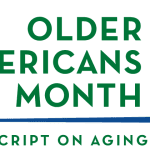How Oral Health Impacts Nutrition
Written by: Kaylee Banks, USF Dietetic Intern, University of South Florida College of Public Health
Our mouths are essential to feeding our bodies. Digestion starts in the mouth; this is when we mechanically chew with our teeth, chemically break down with our saliva, and joyfully taste with our tongue. Without our teeth, it would be difficult to compact food into a size small enough to swallow. We need saliva to moisten the food we chew and allow it to go down smoothly. Lastly, we need our tongues to taste those wonderful flavors that encourage us to eat! When problems arise in the mouth, motivation to eat can diminish. Common issues like tooth loss or pain, improperly fitted dentures, dry mouth, and inability to chew or swallow can all impact our eating patterns. Focusing on our oral health can help improve or prevent nutritional deficits in the future.
Tooth loss or pain
12% of all Americans report having poor oral health, moreover 18% of individuals aged 65 and older report having poor oral health. Nearly 39% of people who report having poor oral health have three or more decaying teeth. Tooth decay is painful and it can lead to tooth loss. Pain while chewing and tooth loss can make eating difficult. It is important to keep good mouth hygiene habits and regular dental visits to prevent tooth decay and pain. Certainly, soft or pureed foods can ease tooth pain. Call Meals on Wheels if you think a pureed or chopped meal is best for you.
Improper fitted dentures
In the National Health and Nutrition Examination Survey (NHANES) III, denture wearers were shown to eat less nutrients essential to health. This included Vitamin C, vitamin E, beta-carotene, lycopene, and lutein, all commonly found in fruits and vegetables. Poorly fitted dentures can further impact patterns of fruit and vegetable intake. Making sure dentures are secure and comfortable will help to chew the healthy fruits and vegetables that our body deserves! Check with your dentist if you suspect your dentures are causing discomfort or are improperly fitted. Additionally, make sure dentures are cleaned regularly to avoid pain from infections.
Dry Mouth (Xerostomia)
There are hundreds of medications that can cause dry mouth. Along with medication, dehydration may also contribute to dry mouth. It is important to keep hydrated as it is difficult to eat with a dry mouth. If you experience dry mouth there are few strategies that can help:
- Avoid salty foods (canned goods, store-bought frozen meals, chips, etc.).
- Avoid dry foods and citrus fruits.
- Suck on hard candies such as lemon drops.
- Keep hydrated, and sip on water throughout meals.
- Add low-sodium sauces and gravies to meals.
- Apply chapstick.
- Ask your dentist/doctor about certain mouthwashes or saliva substitutes that can alleviate dry mouth.
Difficulty chewing and discomfort swallowing
There is no doubt that an inability to chew or swallow can directly impact eating. Difficulty chewing and discomfort swallowing can leave us frustrated and unwilling to eat. Luckily there are ways to make eating comfortable when these problems arise.
- Utilize boiling and steaming cooking methods to soften foods.
- Eat naturally soft foods like mashed potatoes, applesauce, oatmeal, ripe bananas, eggs, and jello.
- Incorporate “liquid foods” like soups and smoothies.
- Switch to chopped or pureed meal options with Meals on Wheels– Call (813) 238-8410
Eating should be pleasurable and fun! Discomfort while eating can discourage food consumption and lead to malnutrition. Taking care of your mouth hygiene and visiting the dentist regularly are some ways to prevent oral complications.
If you feel the pureed or chopped meal options can benefit you, call the Meals On Wheels of Tampa office (813) 238-8410 to switch today.
Resources
Department of Health and Human Sciences. (n.d.). Perceived oral health status among adults with teeth in the United States. Centers for Disease Control and Prevention. Retrieved September 8, 2022, from https://www.cdc.gov/nchs/data/nhanes/databriefs/oralhealth.pdf
National Health and Nutrition Examination Survey III, 1988-1994. (1998). ICPSR Data Holdings. https://doi.org/10.3886/icpsr02231
Width, M., & Reinhard, T. (2021). The Essential Pocket Guide for Clinical Nutrition (3rd ed.). Jones & Bartlett Learning.










